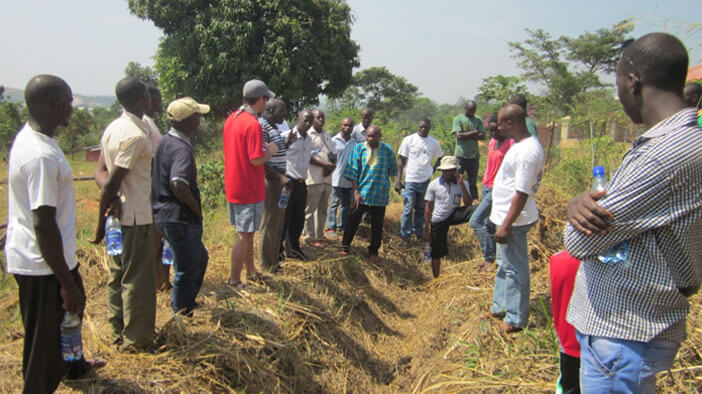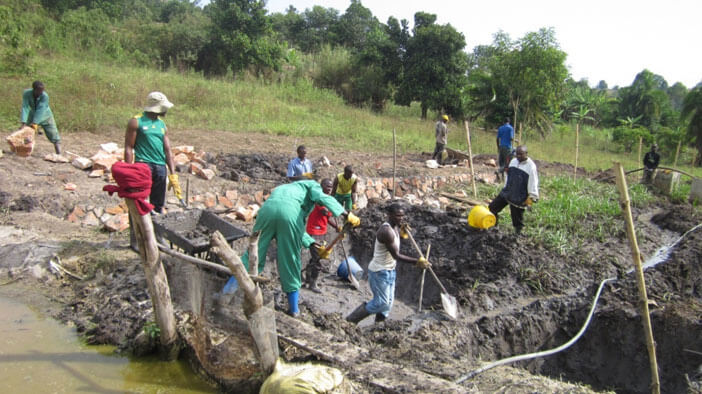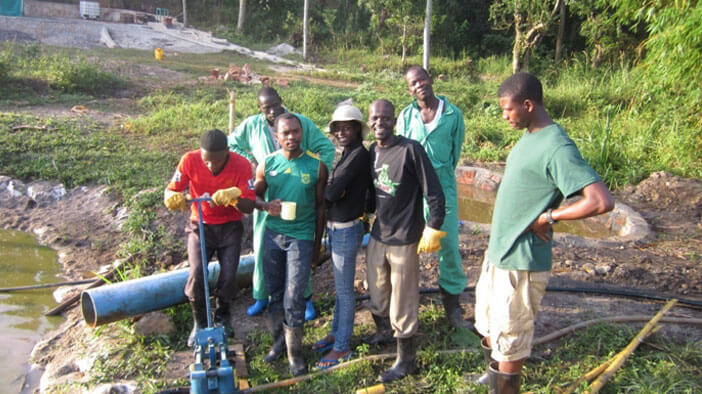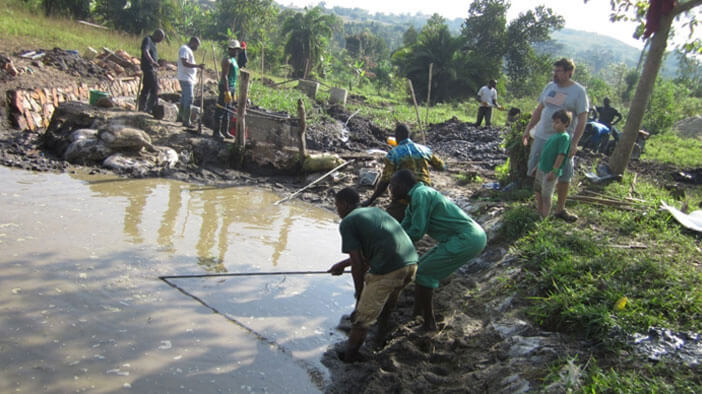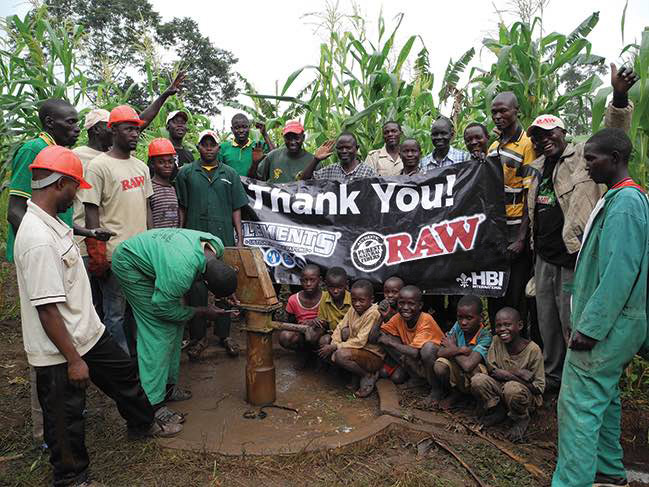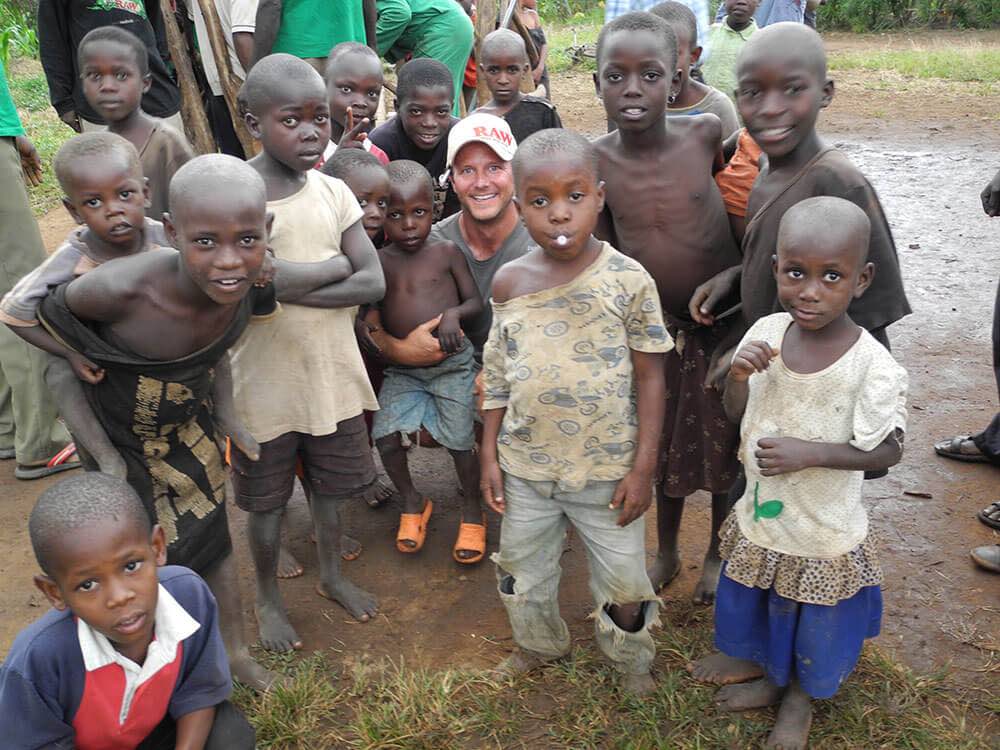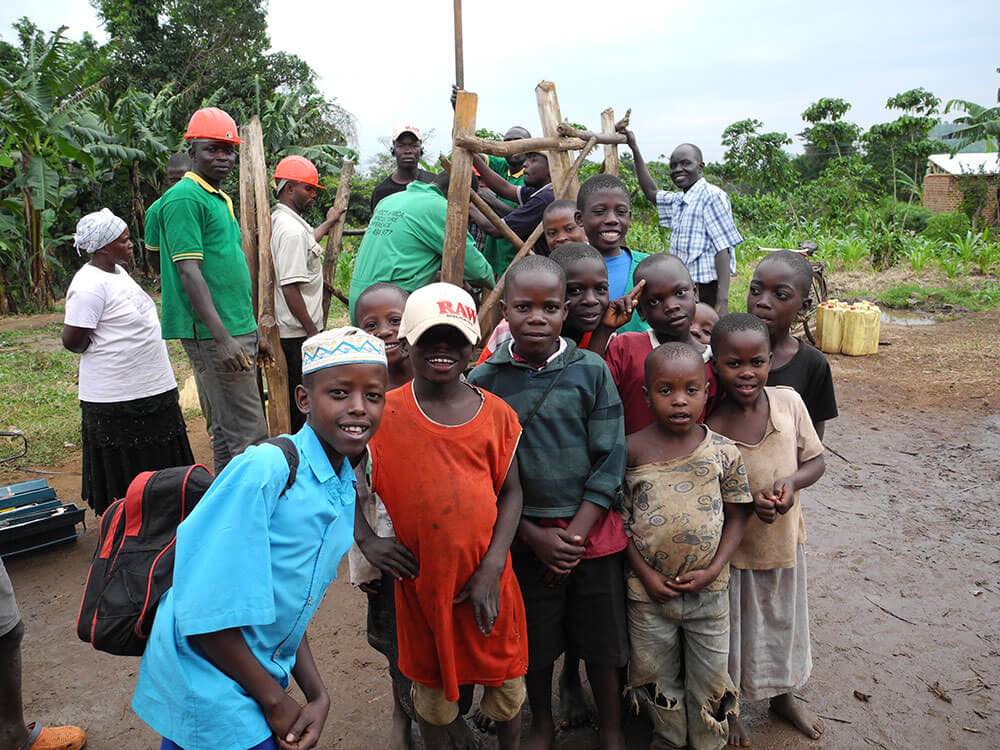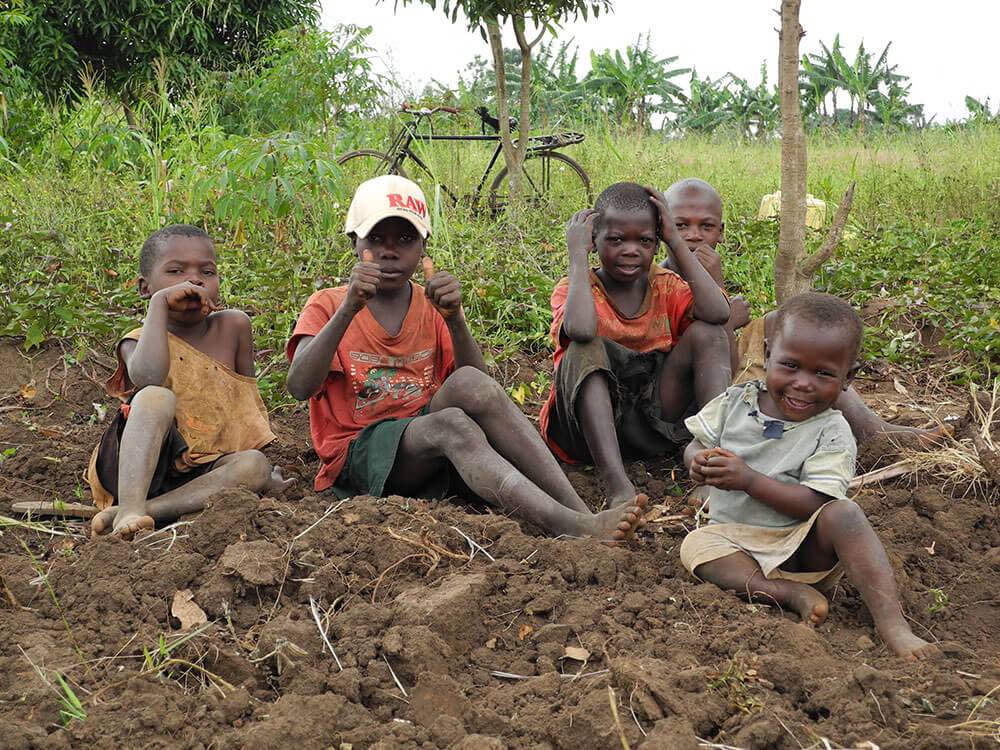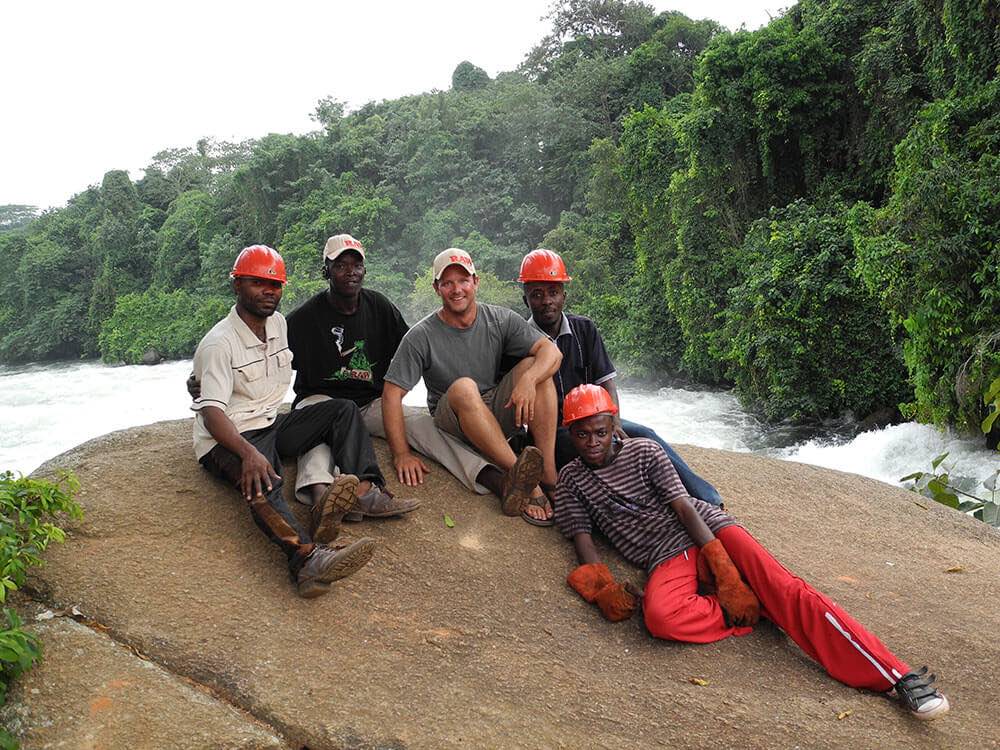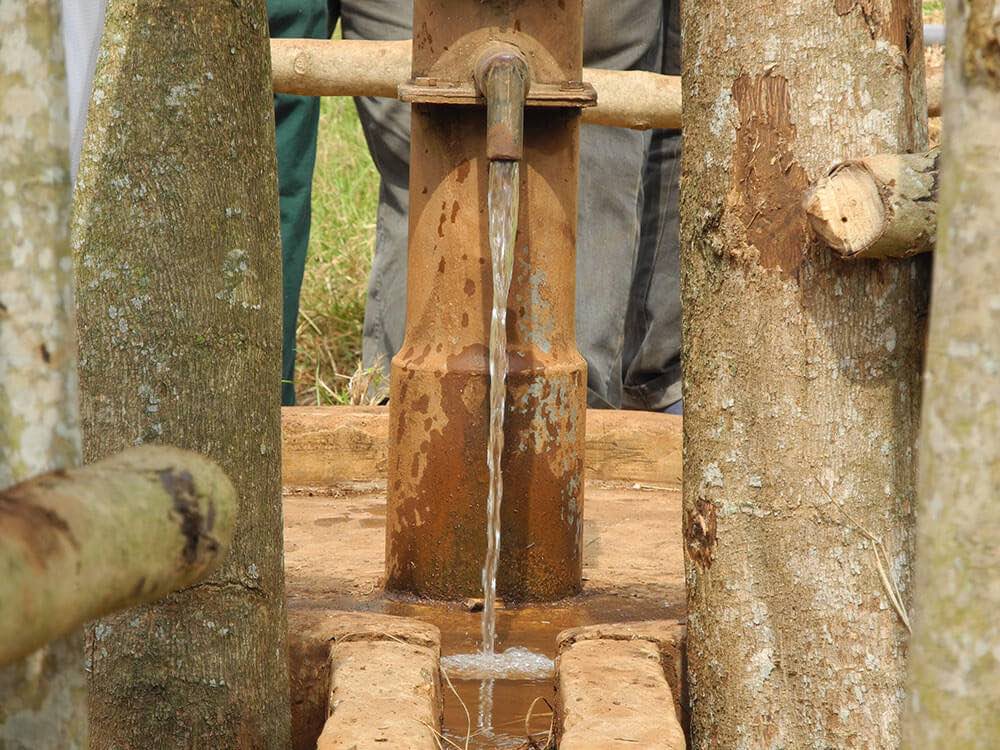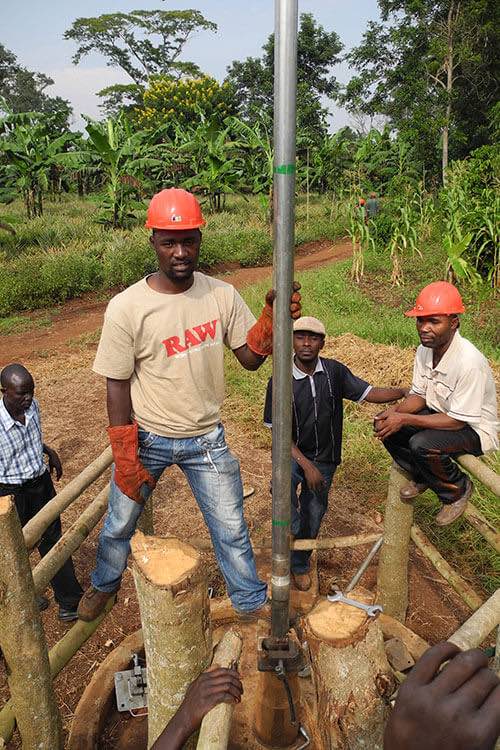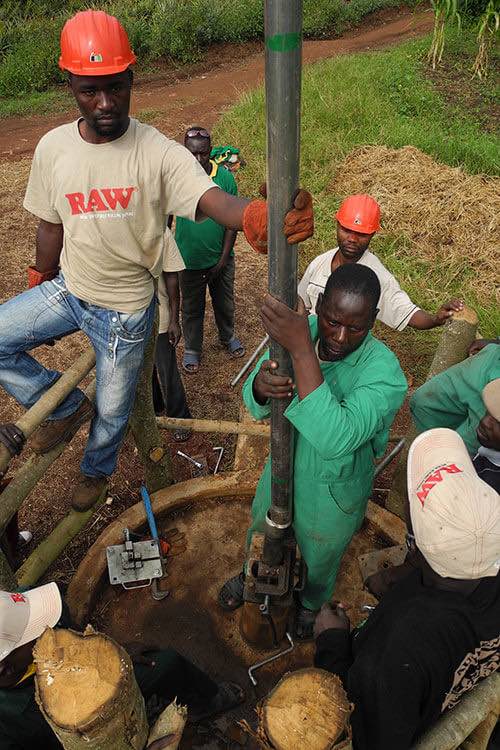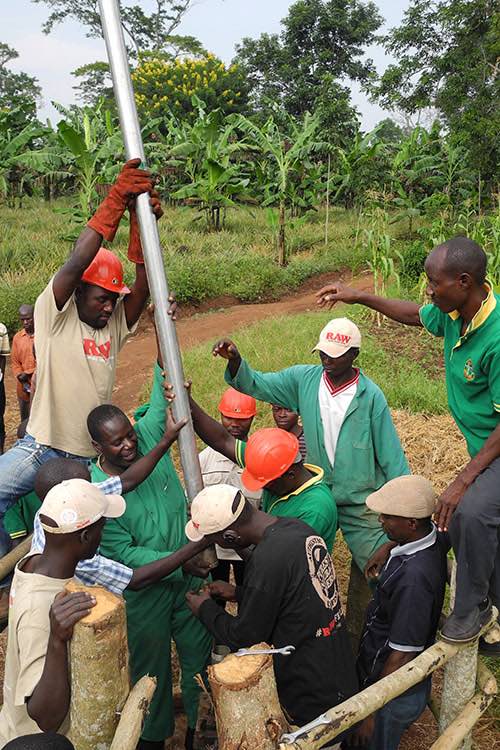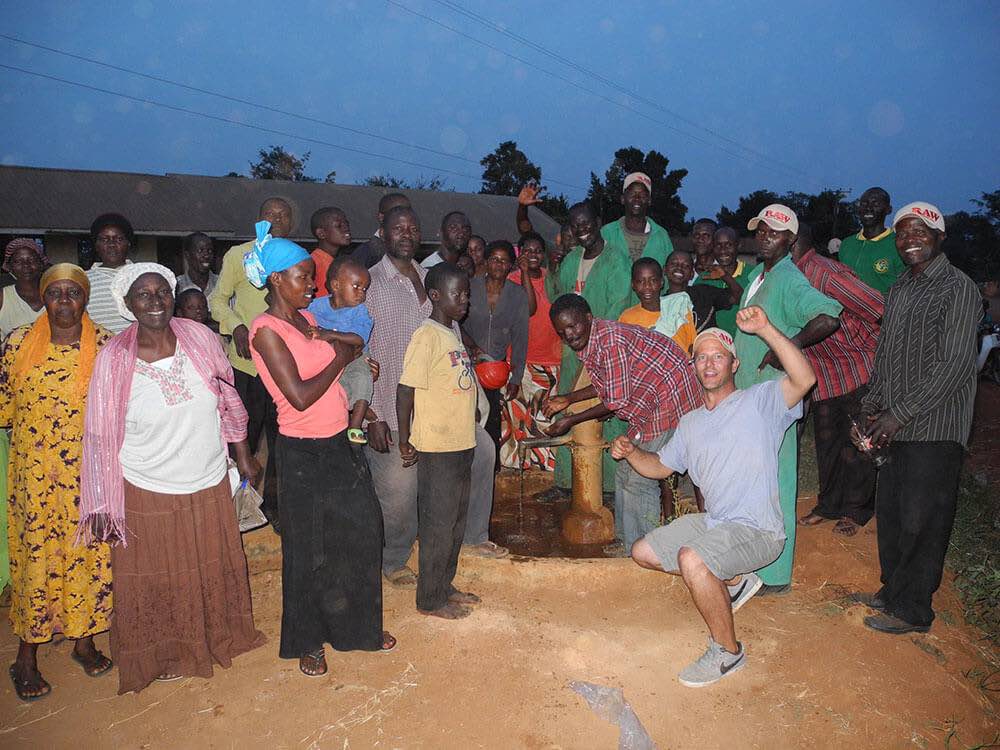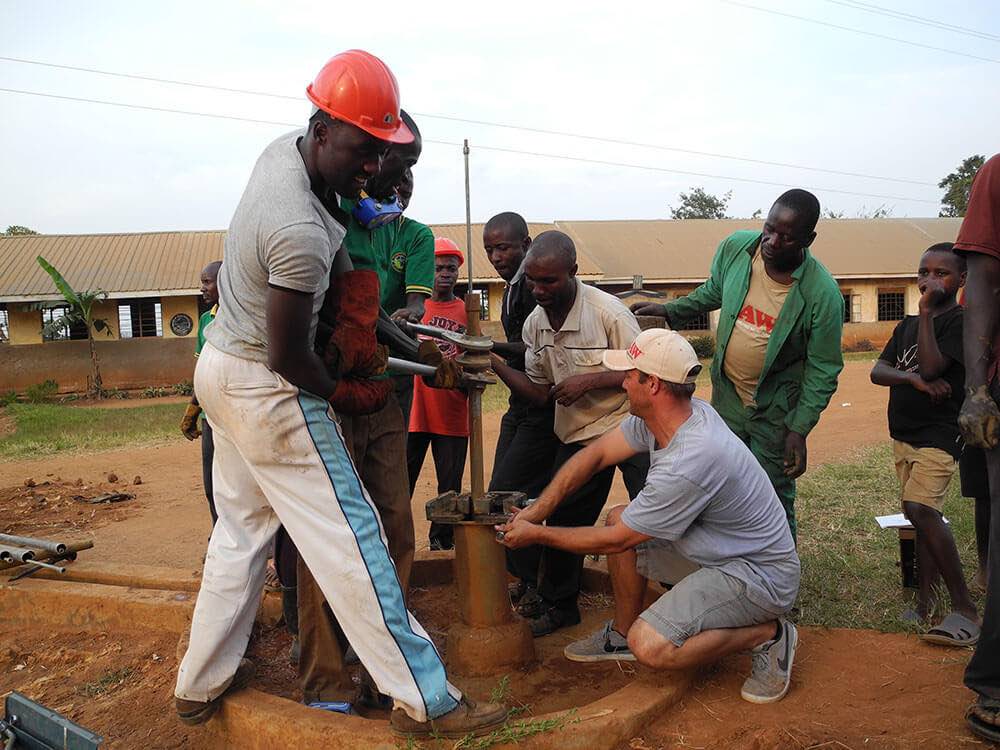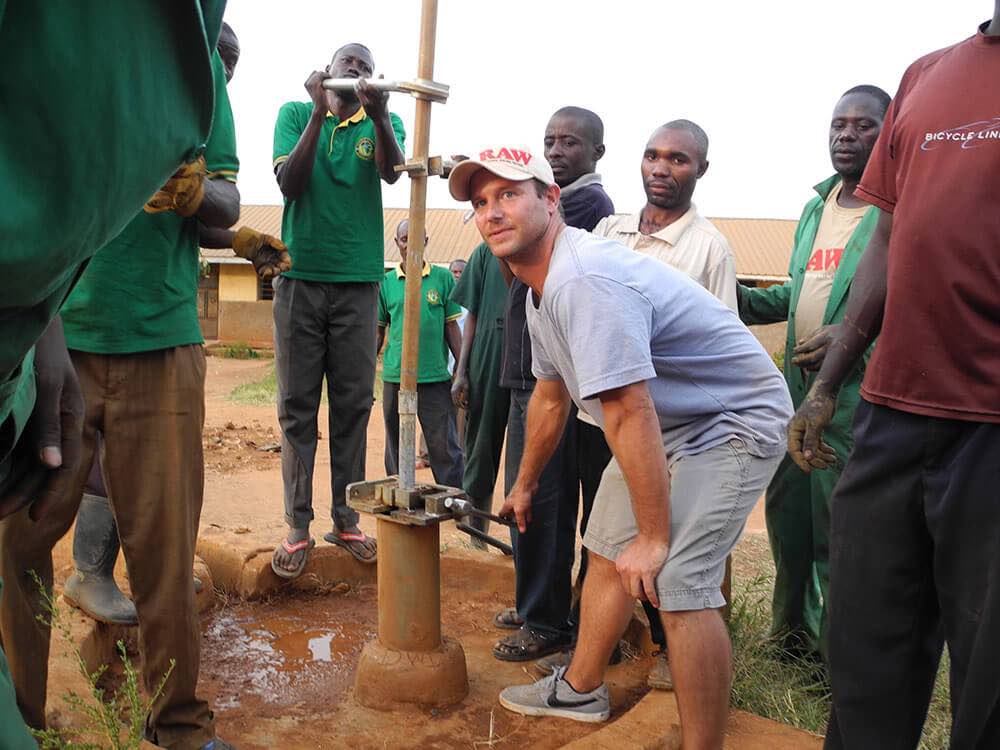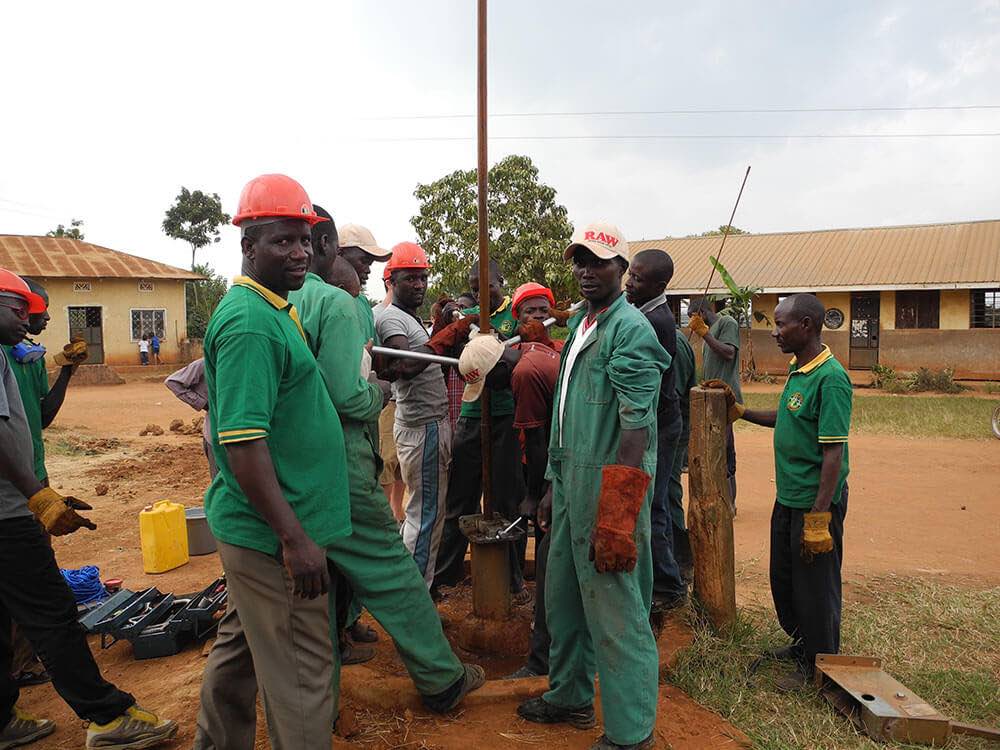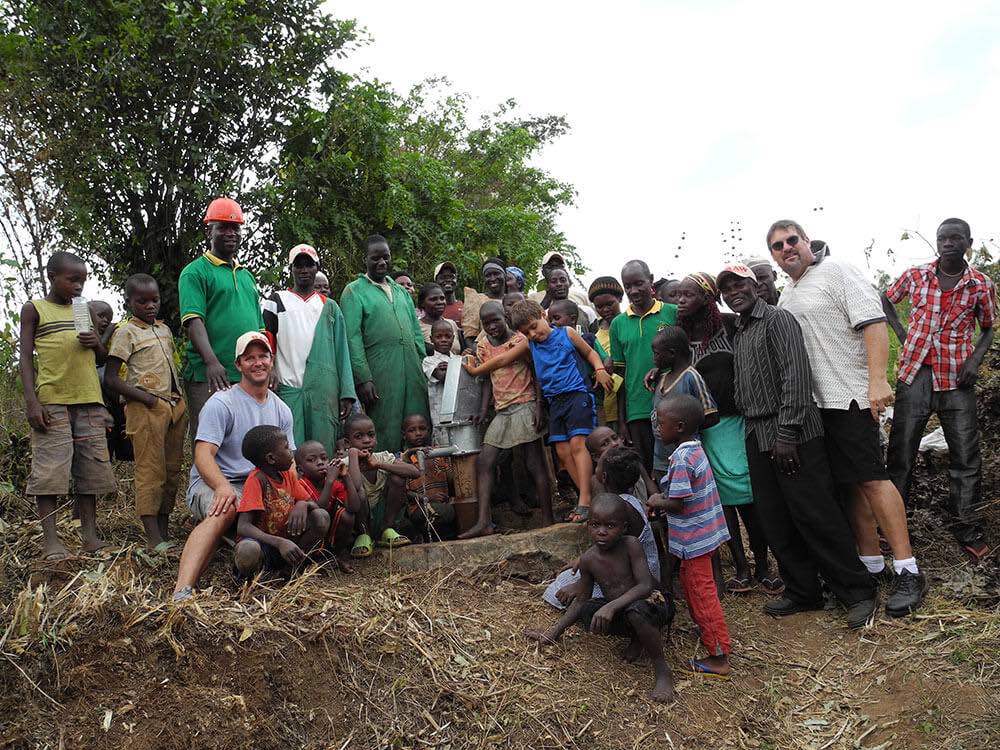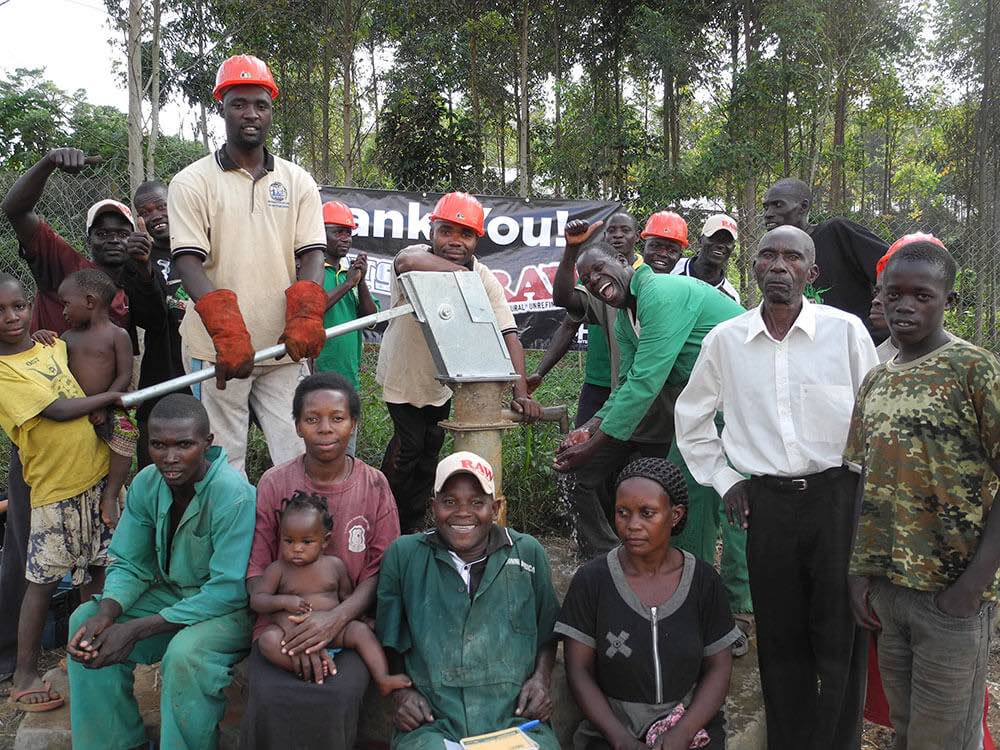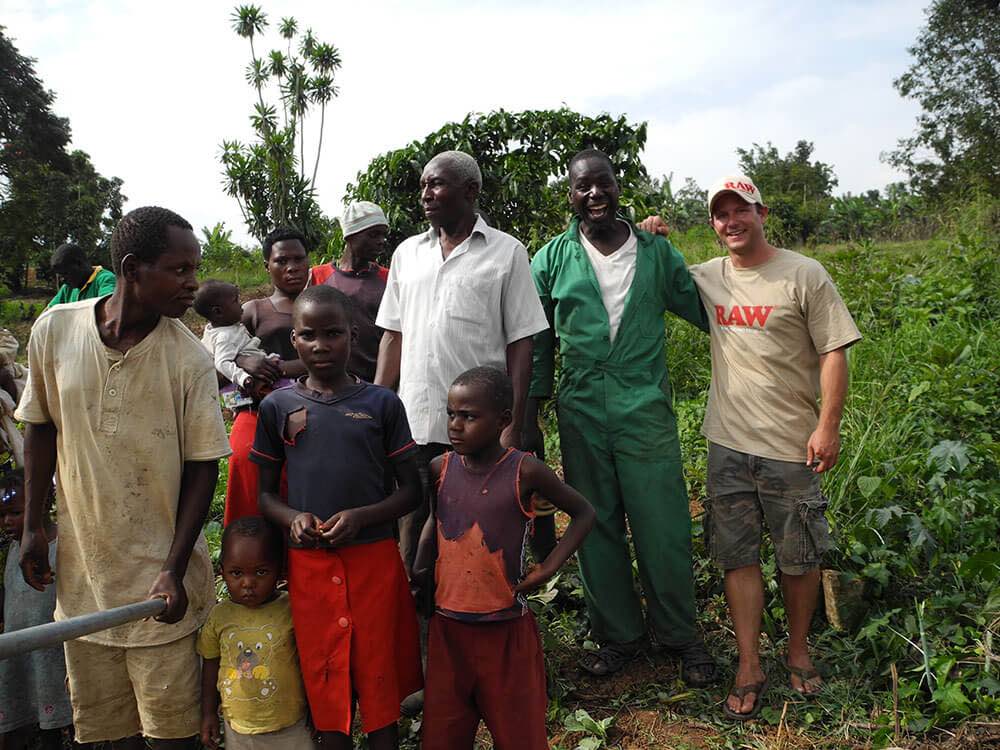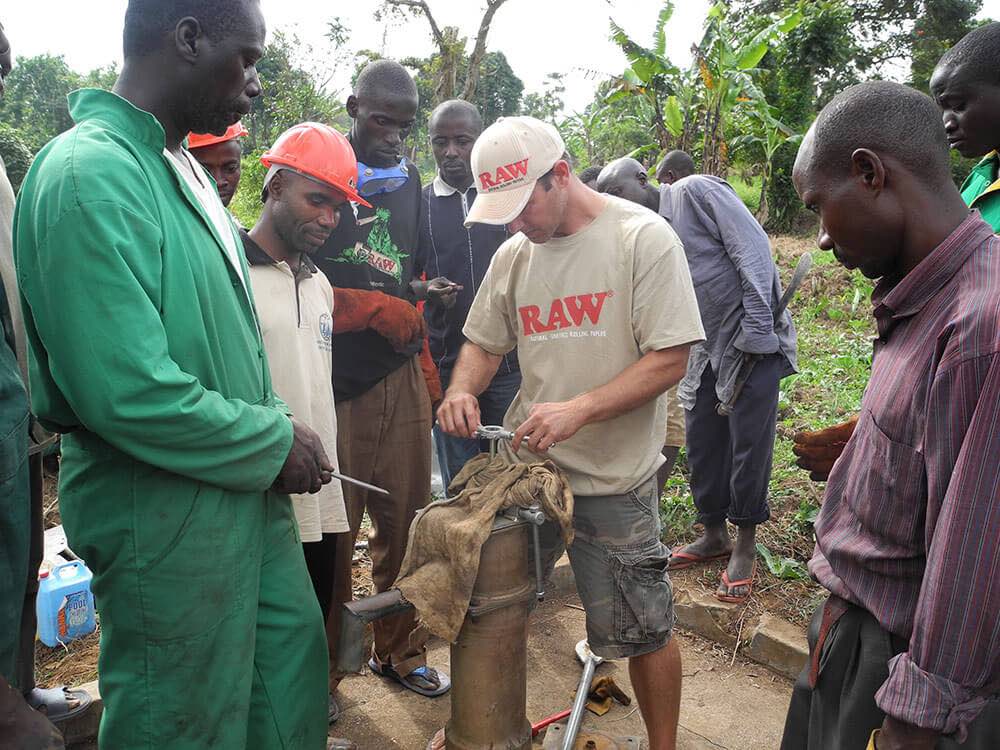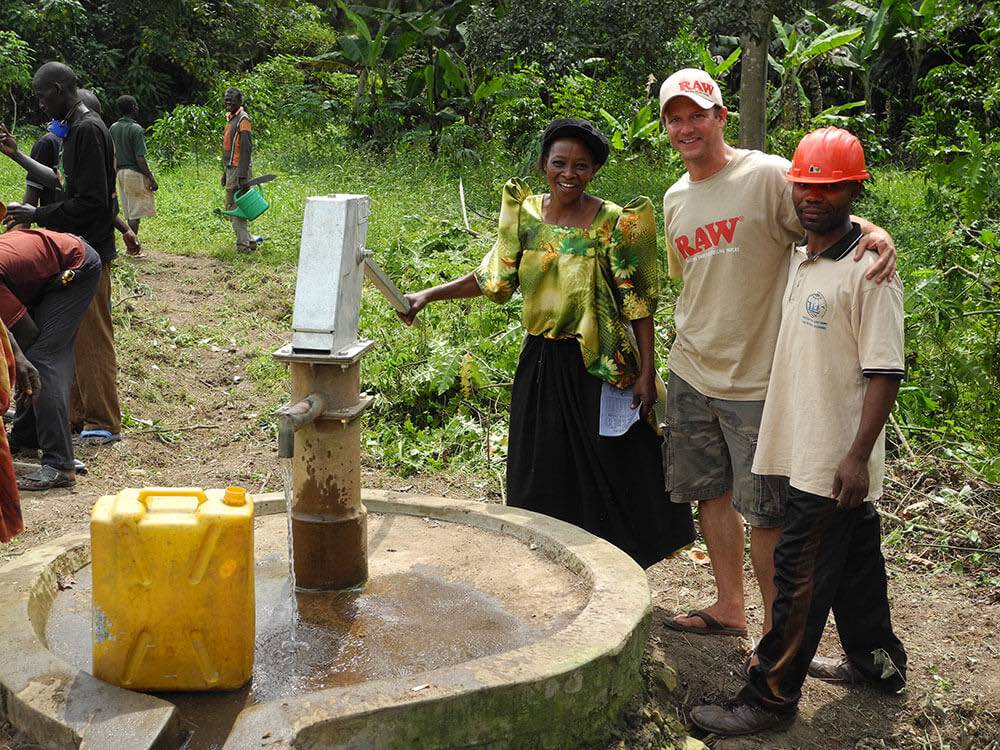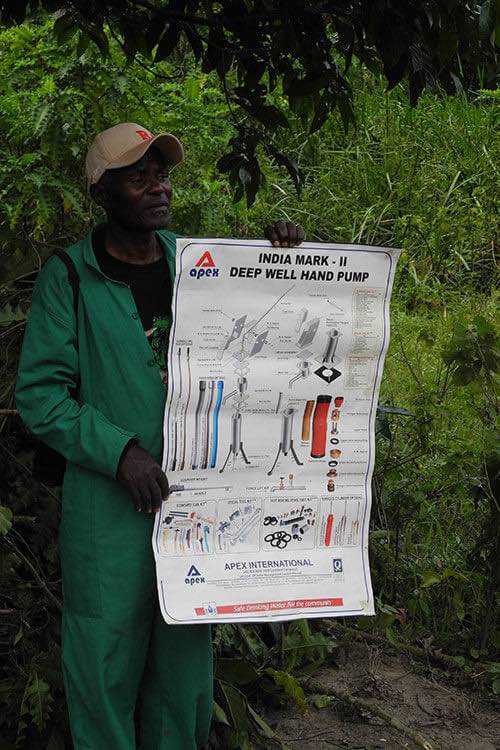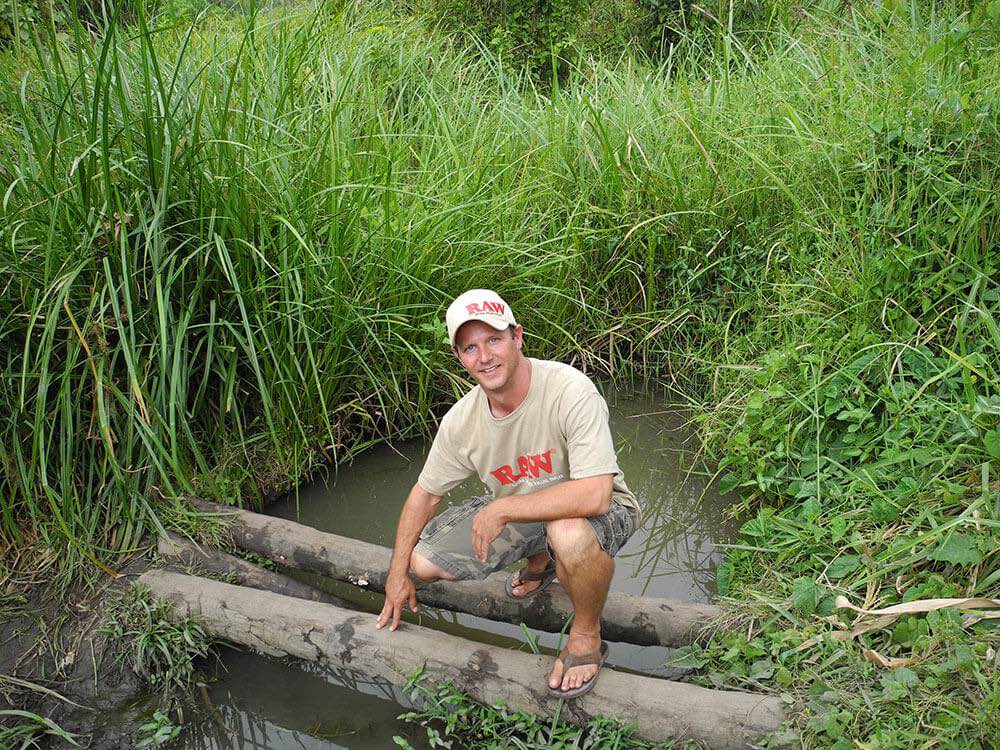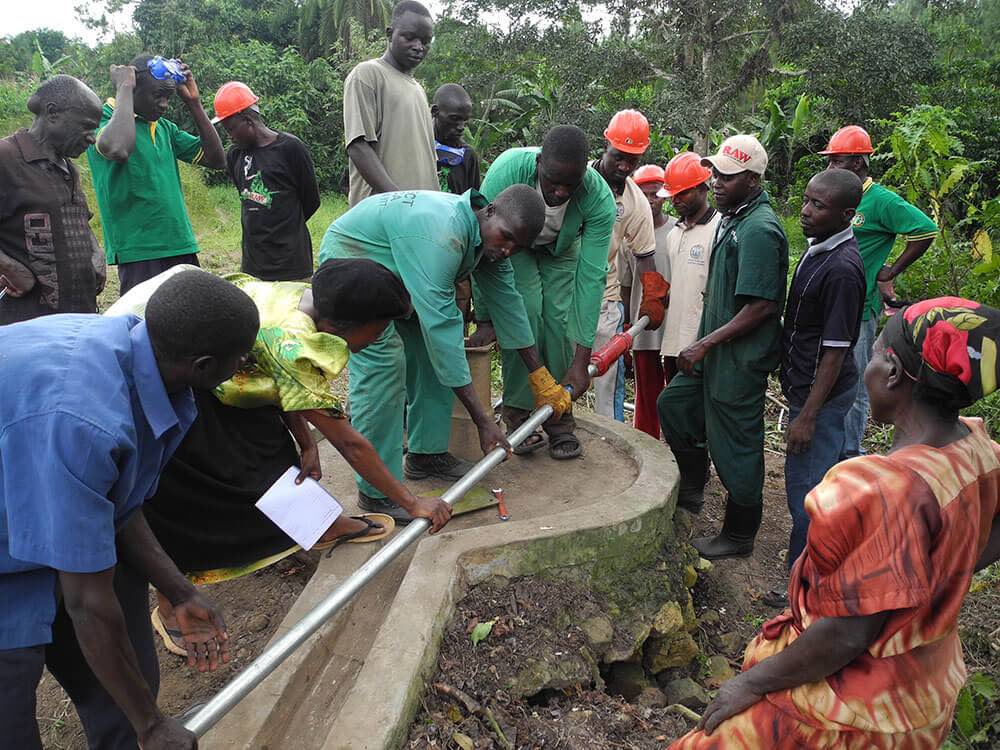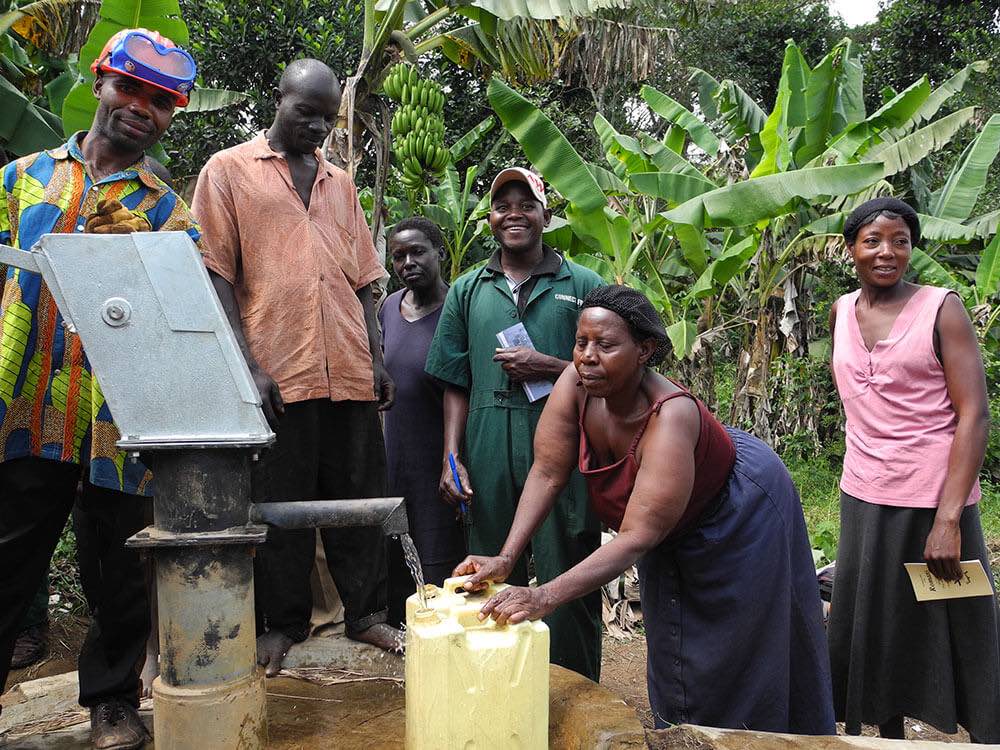RAW’s Lucky 13 Water Well Project repaired and refurbished 13 previously defunct water wells in Uganda and taught locals important skills such as how to fix the well, how to save for well repairs, and illness prevention. The story is that large NGOs originally put in these amazing expensive wells years ago. Then they left and the wells broke. Nobody there knew how to fix them so they became useless. Now, we’ve helped fix them and hopefully created a circle that can keep these wells going in perpetuity.
Give a man a meal, he eats for one day. Teach a man to farm, he eats for life. With this in mind, RAW helped fund the Connect Africa Permaculture Design Course for 22 participants coming from Uganda, Kenya, and Congo in February 2014. The goal of this course was to introduce and promote methods which allow farmers to take advantage of the rainy season(s). By teaching land water harvesting techniques as well as various other techniques which utilize animals and growing a diversity of foods, we hope that the yields will provide food in abundance and help eradicate poverty.

